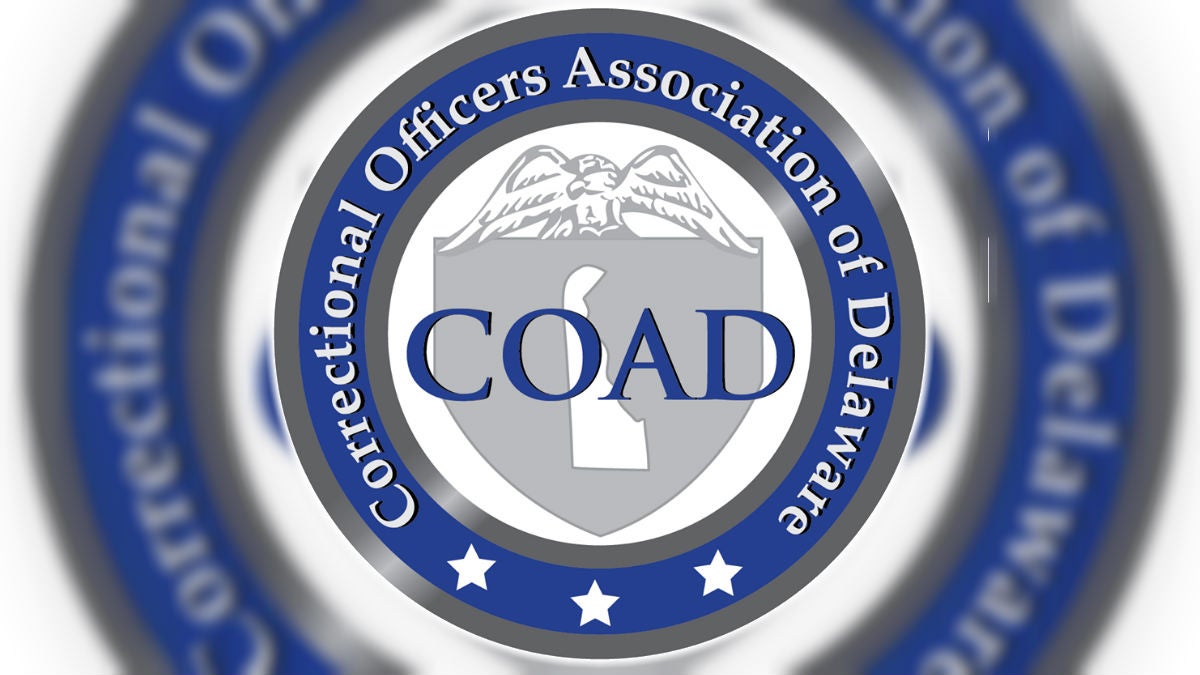Delaware to increase starting salaries for correctional officers
Listen
(Correctional Officers Association of Delaware Facebook photo)
The two-year agreement between the state and correctional officers in Delaware will increase starting salaries by 22 percent.
Delaware Governor John Carney and the Correctional Officers Association of Delaware (COAD) announced the raises on Tuesday. The union approved the agreement last night.
“This agreement represents a significant step forward in addressing our staffing challenges at the Department of Correction,” said Governor Carney, D-Delaware. “We will fairly raise starting salaries for Delaware’s correctional officers, and work closely with COAD to improve our ability to recruit officers.”
Currently, starting salaries for correctional officers in Delaware hover around $33,000. Under this new deal, starting salaries will increase to $40,000 in Fiscal Year 2018 and to $43,000 in Fiscal Year 2019. The final numbers were based, in part, on a study and comparison of correctional officer salaries in surrounding states.
“It’s a tremendous first step in the right direction to begin addressing problems with the Dept. of Correction and the governor continues to keep his word as he works with us,” said Geoff Klopp, president of COAD. “The pay was absolutely not competitive enough to get people to come in and do this job. And we are hoping that this will begin to move the needle in the right direction.”
The agreement also establishes a six-member Labor Management Committee. The Dept. of Correction and COAD will each appoint three members to study additional changes to help recruit and retain officers and decrease the use of mandatory overtime across Delaware’s correctional system. Together, they’ll study the establishment of a 12-hour shift, physical fitness testing, a predictable career ladder, and the establishment of a “freeze” policy. Freezing means involuntary overtime.
The Delaware Dept. of Correction spends the most overtime out of all state government. In May, State Auditor Tom Wagner released a report that revealed the DOC spends more than $800,000 on overtime every two week pay period.
Klopp said that much overtime can be attributed to staffing shortages and burnout among correctional officers at Delaware’s prisons. Both of which, an independent review found, contributed to February’s deadly prison riot at James T. Vaughn Correctional Center in Smyrna. Correctional officer Lt. Steven Floyd was killed during that 20-hour hostage standoff.
“We’re committed to taking the necessary action to address the issues facing our prison system,” said Perry Phelps, commissioner of the Delaware Dept. of Correction. “This agreement to increase salaries will help us recruit and retain officers. And we will continue to work hand-in-hand with COAD to consider additional changes that will improve the working environment inside our facilities.”
“To be clear, making real improvements to our prison system won’t happen overnight. But we are committed to working, over the long-term, to improving conditions for officers and inmates inside Delaware’s correctional facilities,” Carney said.
“Moving forward we will be working on a career ladder, working on more training for correctional officers and more programs for the inmates,” said Klopp, who said these changes are long overdue.
The changes “should’ve been done by last administration,” Klopp said.
Lt. Floyd’s widow and the correctional officers who were held hostage during the prison siege are suing the state and former Governors Jack Markell and Ruth Ann Minner for putting cost-savings ahead of their safety, according to the lawsuit filed in April.
WHYY is your source for fact-based, in-depth journalism and information. As a nonprofit organization, we rely on financial support from readers like you. Please give today.





